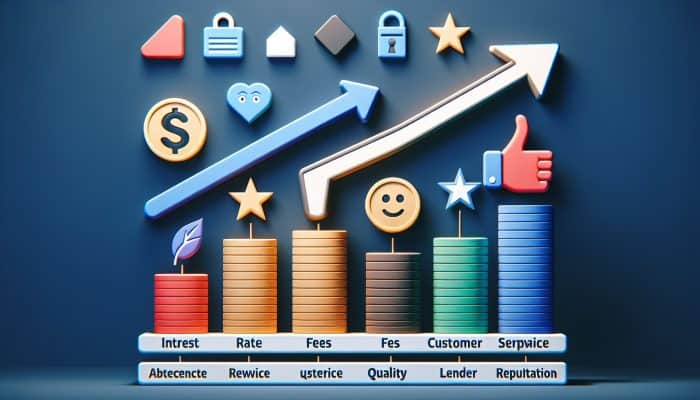Comprehensive Guide to Debt Consolidation Loans in the UK
What Exactly Are Debt Consolidation Loans?

Debt Consolidation Loan Reviews and Ratings: A debt consolidation loan is a financial solution designed for individuals seeking to merge various debts into a single loan, typically boasting a lower interest rate than the combined original debts. This financial strategy simplifies the repayment process and enhances the management of personal finances. Common debts that individuals often choose to consolidate include:
- Credit card debt
- Personal loans
- Store card debt
- Medical bills
- Overdrafts
- Payday loans
- Student loans
By consolidating these debts, borrowers can significantly ease the management of their repayments and reduce the overall burden of debt, ultimately leading to improved financial stability.
What Are the Key Benefits of Debt Consolidation Loans?
One of the most significant benefits of debt consolidation loans is the ability to streamline financial management. Rather than juggling multiple payments with varying due dates and amounts, borrowers can concentrate on a single monthly payment, which simplifies budgeting. Furthermore, by obtaining a loan with a lower interest rate, individuals may experience substantial savings over time, as they will pay considerably less in interest compared to managing several high-interest debts. In the long run, consistent repayment on a consolidation loan can positively impact a borrower’s credit score by enhancing their payment history and decreasing their overall credit utilisation, fostering a healthier financial profile.
How Can You Qualify for a Debt Consolidation Loan?
To successfully qualify for a debt consolidation loan in the UK, lenders typically evaluate several key factors, including the borrower’s credit score, income, and debt-to-income ratio. Here are some essential steps to enhance your chances of securing approval:
- Review your credit report for any errors and dispute inaccuracies.
- Pay off smaller debts to improve your debt-to-income ratio, demonstrating financial responsibility.
- Maintain a stable income to showcase your financial reliability to lenders.
- Consider securing the loan with collateral, especially if your credit rating is poor.
- Research lenders who cater to a diverse range of credit histories and financial situations.
By taking these proactive steps, you can significantly improve your chances of loan approval and potentially secure more advantageous loan terms.
In-Depth Analysis of Debt Consolidation Loan Reviews and Expert Ratings

What Insights Do Experts Provide About Debt Consolidation?
Experts often emphasise that while debt consolidation loans can provide substantial relief, they are not universally applicable. Many financial advisors advocate for a thorough assessment of one’s financial situation before proceeding with consolidation. Real-world examples from the UK illustrate success; for instance, a borrower consolidating £15,000 of credit card debt into a personal loan with a significantly lower interest rate could save thousands over the loan’s duration. However, expert opinions also advise caution against assuming that consolidation alone will rectify underlying financial behaviours, recommending that borrowers adopt improved budgeting practices alongside consolidation to ensure lasting financial health.
How Should You Evaluate Debt Consolidation Loan Reviews?
When considering reviews for debt consolidation loans, it is vital to assess the credibility of the source, the reviewer’s experiences, and the relevance of their circumstances to your own situation. For instance, reviews written by financial advisors or consumer advocacy organisations tend to carry more authority than personal anecdotes lacking context. Common pitfalls in reviews include the use of anecdotal evidence that may not accurately reflect the broader customer experience. Therefore, a balanced approach to evaluating feedback, focusing on both positive and negative aspects, is crucial for making a well-informed decision that aligns with your financial goals.
What Are the Most Important Factors in Loan Ratings?

Loan ratings typically evaluate several critical factors that can significantly influence a borrower’s decision-making process. Key elements include interest rates, associated fees, the quality of customer service, and the lender’s overall reputation. To effectively compare ratings, potential borrowers should:
- Seek out reviews that specifically address loan terms and conditions.
- Compare interest rates from multiple lenders to pinpoint the most competitive deals.
- Assess customer service ratings, as responsive support can be crucial during the repayment period.
- Investigate any hidden fees or charges that may compromise the loan’s overall cost.
By understanding these factors, borrowers can make more informed comparisons, guiding them towards the most suitable lenders and loan options tailored to their needs.
How Can Expert Insights Influence Your Debt Consolidation Decision?
Expert insights can be invaluable when weighing the advantages and disadvantages of debt consolidation options. By leveraging professional advice, individuals can better determine whether consolidation aligns with their financial objectives. For example, experts may recommend specific lenders based on a borrower’s unique credit profile or suggest alternative strategies if consolidation is deemed inadvisable. Moreover, understanding the broader implications of debt consolidation, such as its impact on credit scores and future borrowing capacity, can empower individuals to make informed choices tailored to their unique financial situations.
Understanding the Mechanics of Debt Consolidation Loans in the UK
What Is the Process for Applying for a Debt Consolidation Loan?
Applying for a debt consolidation loan involves several essential steps designed to ensure the borrower is adequately prepared. Initially, it is essential to assess your current debts and determine the total amount owed. Once you have a clear understanding of your financial situation, the next step is to select a suitable lender that offers competitive rates. An application generally requires the following documentation:
- Proof of identity (e.g., passport, driving licence)
- Proof of address (e.g., utility bills, bank statements)
- Income verification (e.g., payslips, tax returns)
- Details on existing debts (e.g., statements from lenders)
Completing the application accurately and comprehensively can significantly increase the likelihood of receiving loan approval.
What Steps Follow After Loan Approval?
Once your debt consolidation loan is approved, the subsequent steps involve utilising the loan amount to pay off your existing debts. This often occurs directly, with the lender disbursing funds to your previous creditors. Following this disbursement, you will begin repaying the new loan according to the terms agreed upon. It is crucial to adhere to the repayment schedule diligently, as missing payments can have severe ramifications, including potential damage to your credit profile. Regularly reviewing your repayment strategy can help guarantee that you stay on track and fulfil your financial commitments.
What Are the Available Repayment Options?
Repayment options for debt consolidation loans can differ significantly based on the lender’s policies. Common repayment structures include fixed monthly payments, which offer predictability, and variable rates, which may fluctuate over time. Some lenders also offer the option for early repayment without penalties, providing borrowers with greater flexibility in managing their loans. Understanding these options is crucial, as they significantly impact the loan’s manageability throughout its duration. Before selecting a loan, consider which repayment structure aligns best with your financial habits and long-term goals to ensure a sustainable repayment plan.
What Are the Potential Risks Associated with Debt Consolidation Loans?
Can Debt Consolidation Result in Increased Debt?
While debt consolidation loans can offer immediate relief, they may also lead to the accumulation of additional debt if not managed prudently. Borrowers may fall into the trap of using credit cards that have been previously paid off, resulting in a scenario where they have both the new loan and additional debts to manage. This underscores the importance of adopting responsible financial habits, such as diligent budgeting and avoiding unnecessary credit use after consolidation. Awareness of this risk can empower individuals to stay disciplined and committed to their long-term financial health.
What Are the Possible Downsides of Consolidation?
Potential downsides of debt consolidation loans include the risk of higher overall costs if the interest rate on the new loan does not represent a substantial reduction compared to previous debts. Furthermore, if borrowers fail to make payments on the consolidation loan, it can adversely affect their credit score, negating the benefits of consolidation. It is crucial to understand these risks; therefore, borrowers should ensure that they fully comprehend the terms of their new loan and remain vigilant regarding repayment schedules to mitigate these potential downsides effectively.
How Can You Avoid Common Pitfalls?
To avoid common pitfalls associated with debt consolidation loans, it is vital to meticulously review all loan terms before committing. This includes understanding the interest rate, associated fees, and any potential penalties for missed payments or early repayments. Borrowers should also conduct thorough research into potential lenders to confirm their reputability and ensure they provide clear, transparent terms. Engaging in financial education and seeking guidance from professionals can further empower individuals to make sound choices that lead to meaningful financial improvement and stability.
What Are the Consequences of Defaulting on a Consolidation Loan?
Defaulting on a consolidation loan can lead to devastating repercussions. This can severely damage your credit score, making it more difficult to secure credit in the future. Additionally, lenders may initiate legal actions to recover the owed amount, which could include pursuing wage garnishment or seizing assets. To mitigate these risks, borrowers should prioritise making timely repayments and proactively communicate with their lenders if they encounter financial difficulties, as many lenders offer assistance or alternative arrangements for borrowers facing hardships.
Research-Driven Advantages of Debt Consolidation Loan Reviews and Ratings
How Can Reviews Assist You in Selecting the Right Loan?
Reviews offer invaluable insights into the experiences of other borrowers, helping prospective clients assess lender reliability and overall customer satisfaction. For example, a borrower may discover that a lender acclaimed for excellent customer service can significantly enhance the repayment experience. Real-world cases reveal that borrowers who diligently researched reviews before committing often reported higher satisfaction levels and fewer issues post-loan. Consequently, leveraging these insights can facilitate more informed choices and contribute to a smoother debt consolidation journey.
What Do Ratings Reveal About Loan Quality?
Ratings act as a quick reference point for understanding the essential aspects of a debt consolidation loan, including interest rates and fees. A high rating may signal a competitive offering, while a low rating could indicate potential issues or concealed costs. Expert analyses suggest that borrowers should not rely exclusively on ratings, but rather view them in conjunction with comprehensive research and personal circumstances. By interpreting these ratings thoughtfully, individuals can make more informed choices that align with their financial goals and needs.
How Can You Utilise Reviews and Ratings Effectively?
To effectively leverage reviews and ratings in your decision-making process, concentrate on recent feedback, as this is more likely to reflect the current service standards of lenders. Look for patterns in comments, such as recurring strengths or weaknesses highlighted by multiple reviewers, as these can offer deeper insights. Additionally, consider multiple sources for a comprehensive overview, including consumer review platforms, financial blogs, and online forums. This multifaceted approach ensures that you are well-informed and empowered to select the best lender for your unique needs.
What Are the Limitations of Reviews and Ratings?
While reviews and ratings can provide valuable guidance, they inherently possess limitations. They may not accurately reflect your specific circumstances, as individual experiences can vary significantly. Biases—whether positive or negative—can also distort perceptions, and often, reviews may become dated over time. Because of this, it is essential to supplement reviews with your own thorough research and financial analysis to reach informed conclusions regarding potential loans. Understanding these limitations can help you navigate the debt consolidation landscape more effectively and judiciously.
How Do Research-Driven Benefits Shape Loan Decisions?
Research-driven benefits offer evidence-based insights into the effectiveness and advantages of debt consolidation loans, empowering borrowers to make informed decisions. For instance, studies indicating that borrowers who consolidate their debts typically save money on interest payments can guide individuals towards favourable outcomes. Consequently, understanding these research-backed benefits allows individuals to recognise the potential positive impacts of consolidation, motivating them to engage in the process with confidence and clarity, ultimately leading to a healthier financial future.
Reliable Strategies for Assessing Debt Consolidation Loan Reviews and Ratings
How to Identify the Best Debt Consolidation Loans in the UK?
Finding the best debt consolidation loans in the UK necessitates a strategic approach to comparing various options. Begin by evaluating interest rates from different lenders and assessing the overall fees associated with each loan. Ensure you understand the lender’s reputation by studying customer reviews and checking their standing with regulatory bodies. Additionally, consider utilising online comparison tools that streamline this process and provide side-by-side evaluations of loan offers. This thorough research process will ensure that you discover a loan that aligns well with your financial situation and goals.
What Are the Best Practices for Reading Reviews?
Best practices for reading reviews involve seeking a diverse mix of feedback from various sources to gain a well-rounded perspective. Focus on detailed reviews that offer context regarding the reviewer’s financial situation and the specifics of their loan, as this can help you relate their experiences to your own. Please exercise caution when evaluating overly positive or excessively negative reviews, as they may not accurately represent the average customer experience. By taking the time to evaluate reviews critically, you can enhance your understanding of potential lenders and their offerings, leading to more informed decisions.
How to Make a Thoughtful Decision Based on Ratings?
To arrive at a thoughtful decision based on ratings, first comprehend what those ratings specifically assess, such as interest rates, fees, and borrower feedback. Please familiarise yourself with how ratings are calculated and consider their implications for your financial situation. It may also be advantageous to cross-reference ratings with specific customer reviews to gain a deeper understanding of the lender’s performance in real-world scenarios. By connecting ratings with comprehensive research, you can derive meaningful insights that facilitate better decision-making regarding debt consolidation loans.
How to Assess Lender Credibility and Security?
Evaluating lender credibility involves checking their regulatory status, customer service ratings, and security measures for protecting personal financial information. In the UK, reputable lenders should be authorised and regulated by the Financial Conduct Authority (FCA). Additionally, assess customer feedback regarding their experiences with lender transparency and support. Ensuring that a lender prioritises data security and has a strong reputation can significantly enhance your comfort level and confidence when proceeding with a debt consolidation loan.
What Role Do Customer Testimonials Have in Decision Making?
Customer testimonials offer valuable insights into real-life experiences with lenders and can significantly impact decision-making. Positive testimonials can underscore a lender’s reliability and high customer satisfaction, while negative feedback may expose potential pitfalls to avoid. Testimonials often reflect the consistency of service, which is crucial for borrowers navigating their repayment journey. Therefore, considering these testimonials alongside reviews and ratings can help create a comprehensive picture of how a lender operates and whether they are the right fit for your debt consolidation needs.
Frequently Asked Questions about Debt Consolidation Loans
What is a debt consolidation loan?
A debt consolidation loan merges multiple debts into a single loan, typically with a lower interest rate, thus simplifying repayment and management.
Who qualifies for a debt consolidation loan?
Qualification generally hinges on your credit score, income, and debt-to-income ratio, which lenders use to assess your eligibility.
Are debt consolidation loans a good idea?
They can be beneficial for streamlining payments and lowering interest, but they necessitate responsible financial habits to prevent the accumulation of new debts.
What should I look for in a lender?
Look for lenders offering competitive interest rates, strong customer service ratings, and clear, transparent terms. Verify their regulatory status to ensure credibility.
Can I obtain a debt consolidation loan with poor credit?
Yes, certain lenders specialise in loans for individuals with poor credit; however, be prepared for higher interest rates and less favourable terms.
How long does it take to receive approval?
Approval times can vary by lender, but many loans can be approved within a few days, depending on the completeness of your application and documentation.
What fees are associated with debt consolidation loans?
Fees may include origination fees, late payment fees, and penalties for early repayment. Always scrutinise the loan terms carefully for any hidden costs.
Can I continue using credit cards after consolidating my debt?
While it is possible, responsible financial practice generally advises against using credit cards after consolidation to avoid incurring additional debt.
What are the consequences of missing a payment?
Missing payments can result in late fees, increased interest rates, and potential harm to your credit score, making it essential to stay on top of repayments.
Is debt consolidation equivalent to bankruptcy?
No, debt consolidation is a strategy for managing debt, whereas bankruptcy is a legal process that can result in asset loss and long-term negative credit implications.




